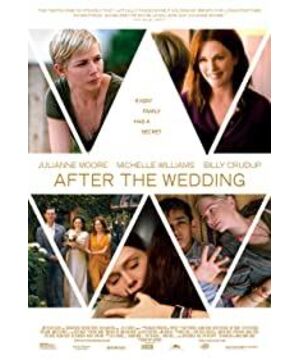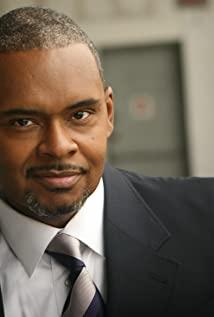Hollywood's remaking business is always a mug's game (whether of its own repertoire or foreign tongue goodies), even for an actor with the caliber of Julianne Moore (with a track record including PSYCHO 1998, CHLOE 2009, CARRIE 2013), who has to scrape the recycled barrel to get new projects financed, which may pointedly signal the hemorrhage or deficiency of women-savvy scribes in the Tinseltown, and leave the current situation much to be desired.
After her terrific turn in Sebastián Lelio's self-reflexive remake GLORIA BELL (2018), Moore's following acting gig is another one, AFTER THE WEDDING is an American adaptation of Susanne Bier's 2006 Danish Oscar Best Foreign Language Film nominee of the same name, and this time, her hubby Bart Freundlich is the writer and directer, his 7th feature (four of which starring Moore).
Thanks to an over-a-decade time-span, this reviewer only retains a rather vague memory of Bier's original (save that Mads Mikkelsen and Sidse Babett Knundsen are brilliant in it!), which turns out to be a blessing to retain the suspense of the plot. Apart from the location and nationality change and the with-it gender swap, Freundlich's remake follows closely to Bier's storyline. Isabel (Williams), an American who has expended most of her life in running an orphanage in Calcutta, India, is requested to meet a potential benefactor, the multi-millionaire entrepreneur Theresa Young (Moore) in New York, who is considering donating millions to Isabel's strapped institution. Isabel is casually invited to attend the wedding of Grace (Quinn), Theresa's 20-year -old daughter, only to be wrong-footed when she realizes that she is Grace's biological mother,and Grace's artist father, Oscar (Crudup) is her ex-lover, who reneges from their consensual decision to send their newborn baby for adoption, and without informing Isabel, he raises Grace on his own, and later marries Theresa.
So after the wedding, what comes next, a funeral perhaps? It doesn't require much deliberation to smell the manipulation behind this sheer coincidence, in spite of Theresa plays “I didn't know” card as naturally as possible, and the movie's Taiwan title can be literally translated as “Can you marry my husband?”, that comes as a dead giveaway of the twist, also prompted by Theresa's obsession with an empty bird nest with broken eggshells. In time, her arrière-pensée can no longer be concealed and once her cards are laid in the open, the conundrum falls onto Isabel, leaving her lifelong endeavor in India, not to mention her strong connection with a local orphan boy Jai (Pachisia) and returning to New York, living on the easy street with her own daughter with millions of funds under both's names, Theresa's offer is too munificent to decline,and Isabel's final capitulation seems like a missed opportunity to upgrade the treacle-like story to something more urgently resonant, since the white savior scenario is no longer popular anymore, the disenchantment and struggle of an idealist should have been the cynosure.
As a melodrama, AFTER THE WEDDING disproportionately hinges on the two female performers here, Moore juggles dexterously between a loving mother (including a trademark bawling confession) and a sharp-edged business woman (teeing off on her secretary is a go-to option to show Theresa's diva side), and the movie is at its best when Moore plays off with an equally excellent Williams, who emphatically refuses to dial down Isabel's skepticism in the face of a bolt out of blue and suspicious windfalls, also sends off her indignation by doffing her shoes (a knee-jerking reaction reflecting the world she lives in), their blunt-versus-peremptory interplay attests why we love to watch actresses trying to upstage each other if they are granted a stage together.
Crudup is ever so apt in supporting his two leading ladies and puts on a mask on Oscar's own agenda, only betrays it in small gestures with both frustration and compassion, whereas newcomer Abby Quinn's Grace is laden with the most dramatic happenstances (getting married, then regretting it, her birth mother, whom she reckons is dead, cropping up out of nowhere, plus bad tidings of an impending bereavement), but not enough content to underset them, save a daunting love-gushing moment that can be easily read as cringe -worthy, Grace should have been the most conflicted character, but the film doesn't give her enough credit, as I said, it is a mug's game and AFTER THE WEDDING has no distinction to break that curse.
referential entries: Susanne Bier's AFTER THE WEDDING (2006, 7.3/10); Freundlich's TRUST THE MAN (2005, 6.1/10).
View more about After the Wedding reviews











